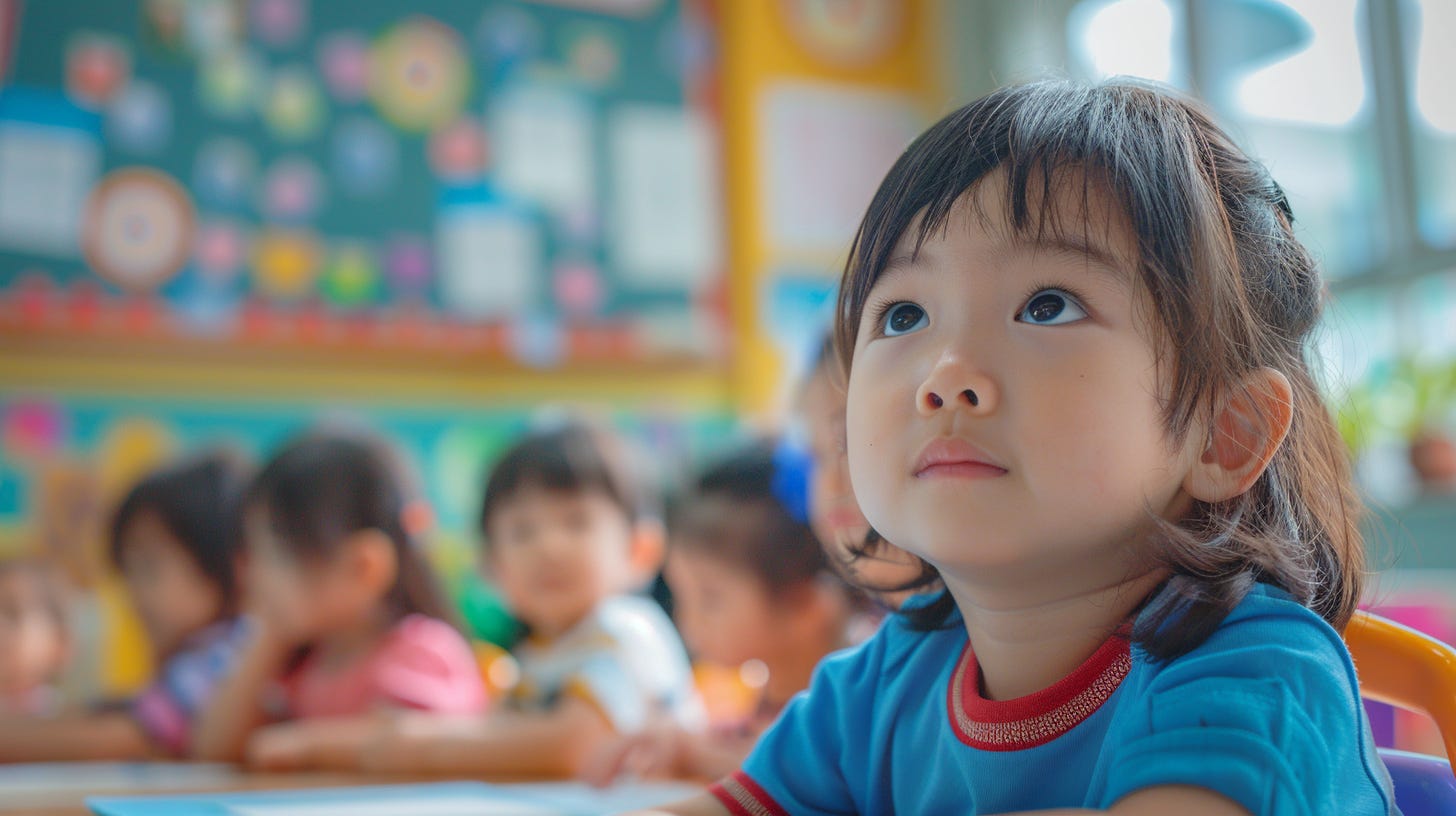Elite Singapore Preschool Requires Toddlers to Pass IQ Test for Admission
SINGAPORE — An elite preschool in Singapore has instituted a new admission requirement: prospective students must pass an IQ test. This new policy has garnered attention from parents, educators, and policymakers alike.
The Little Einsteins Academy, located in Singapore's affluent Bukit Timah district, announced the decision last month. The school, which caters to children aged two to four, is known for its rigorous curriculum and high academic standards. However, the introduction of IQ testing as an entry requirement has pushed the boundaries of early childhood education practices.
"We believe in nurturing young minds and providing them with an environment that matches their intellectual abilities," said Dr. Emily Tan, the principal of Little Einsteins Academy. "By implementing IQ tests, we can ensure that our programs are tailored to meet the needs of exceptionally gifted children."
The policy has elicited mixed reactions from parents. Some see it as a necessary step to ensure their children receive the best possible education from a young age, while others argue it places undue pressure on toddlers and their families.
"I want my child to have every advantage," said Jane Lim, a parent who plans to have her three-year-old tested. "If this test can help identify her strengths early on, then I'm all for it."
Conversely, other parents are worried about the long-term impact of such early evaluations. "It's ridiculous to subject a toddler to an IQ test," argued Mark Chua, a father of two. "Children should be allowed to enjoy their childhood without the stress of academic assessments."
Educators and child psychologists have also voiced their opinions on the new policy. Some experts believe that while identifying gifted children early can be beneficial, the reliance on IQ tests is problematic.
"IQ tests can offer some insights, but they are not definitive measures of a child's potential," explained Dr. Sarah Lee, a child psychologist at the National University of Singapore. "Young children develop at different rates, and an early test may not accurately reflect their future abilities."
Dr. Lee also emphasized the importance of a holistic approach to early childhood education. "Focus should be on fostering creativity, social skills, and emotional development, rather than purely academic metrics."
The decision by Little Einsteins Academy has opened up a broader discussion about the role of intelligence testing in early education. It raises questions about the pressure to excel academically from an increasingly young age and the potential consequences of such policies.
"We need to consider the broader implications of this trend," said Minister of Education Lawrence Wong in a recent statement. "While it is important to support gifted children, we must ensure that our educational policies do not create undue stress or widen educational inequalities."



